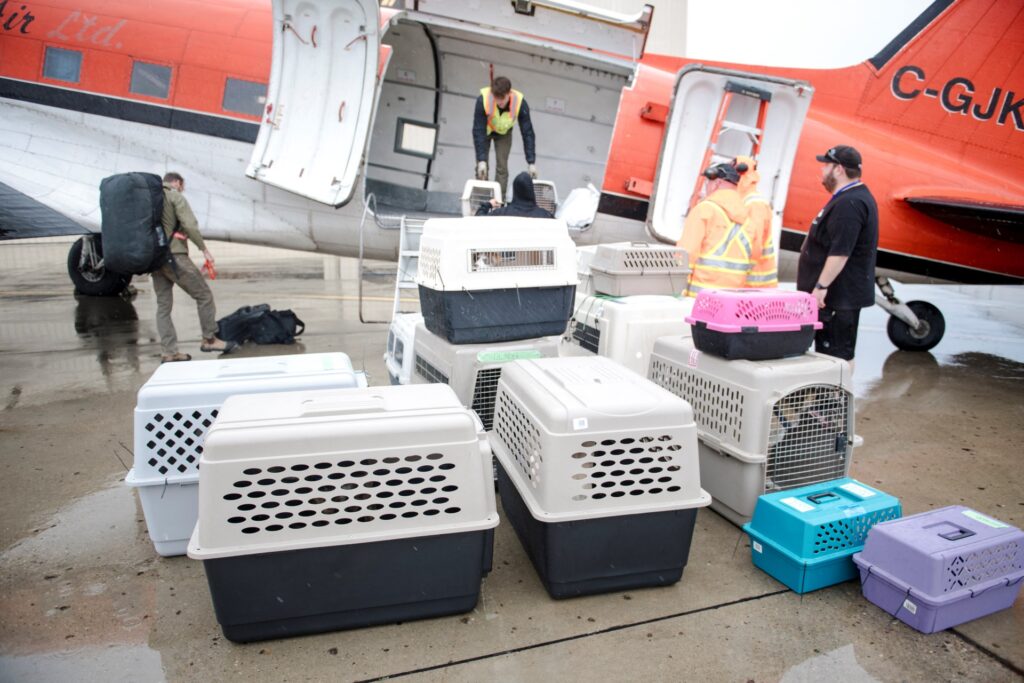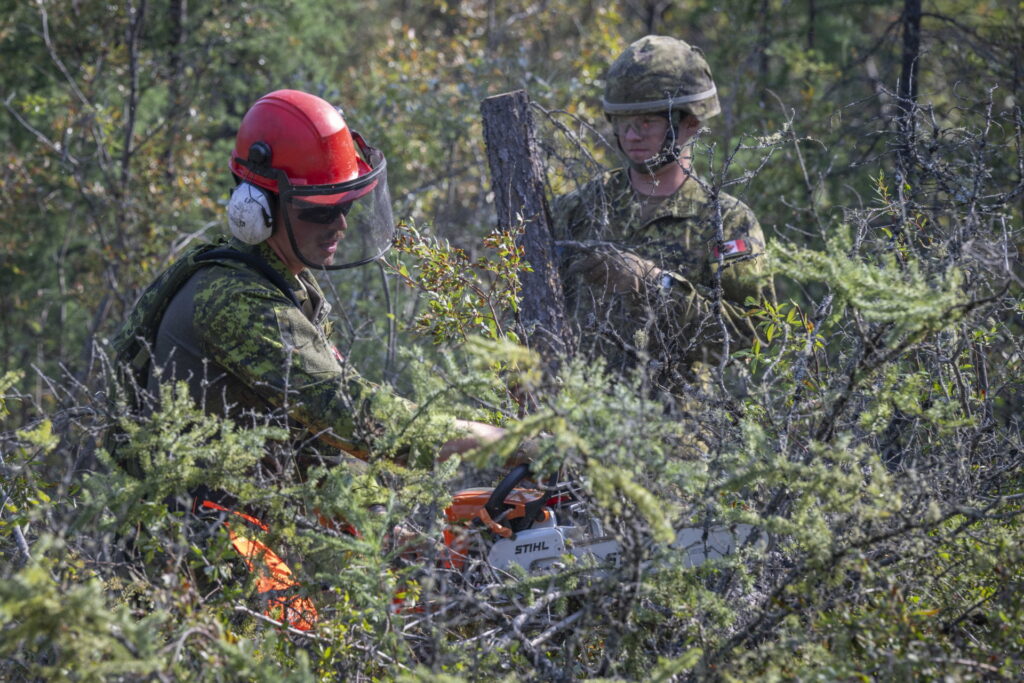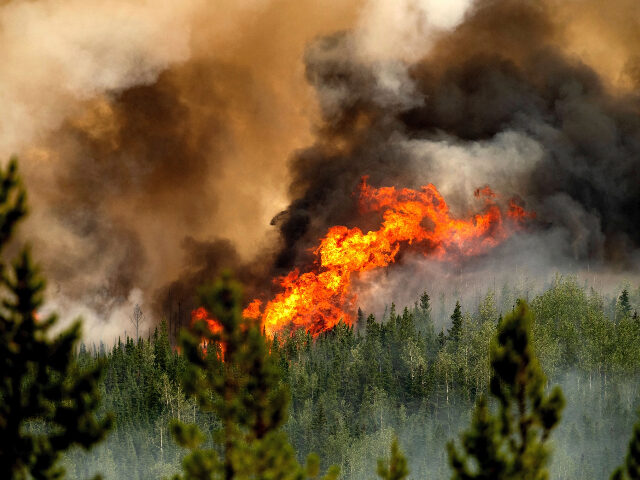Canadians on Thursday were outraged to discover that the price of plane tickets out of Yellowknife, the capital of the wildfire-ravaged Northwest Territories (NWT), has exploded to thousands of dollars per seat.
Airline representatives said the price controversy was caused by a misunderstanding, and reasonably priced seats are being made available as quickly as possible.
An evacuation order was issued for Yellowknife on Wednesday as fires closed in on the province’s largest city.
“By issuing an evacuation order now, we can implement the evacuation plan while the highway is still open and with plenty of flights to evacuate everyone,” Yellowknife Mayor Rebecca Alty said when the evacuation order was issued.
Residents were given until noon on Friday to safely depart the city. As of Thursday evening, the line of fires had closed to within ten miles of the NWT capital.
Canadian social media users began posting incredibly high prices for Air Canada tickets out of Yellowknife. One sample itinerary charged $4,665 for a flight from Yellowknife to Edmonton with three stops.
Considerable anger and confusion flowed from these social media posts, but Yahoo News Canada on Thursday said the highest ticket prices appeared to be anomalies, or perhaps the airlines made some quick corrections. By Thursday evening, both Air Canada and Westjet, which also flies out of Yellowknife, were listing far more ordinary ticket prices between $200 and $300.
“In these instances where people are posting screenshots of higher fares from social media, these are based on complex itineraries involving multiple flights, and sometimes multiple carriers, rather than direct flights out,” Air Canada said in an emailed statement to the press.
Air Canada added that additional flights had been routed to Yellowknife to aid the evacuation, providing more seats for evacuees at less than $300 each.
“We are working with authorities to determine how long we can continue to operate given the limitations being imposed on flying due to the fires,” the statement said.
Westjet also said it was controlling fares to avoid “price escalation,” bringing in larger planes to make more seats available for evacuees, and increasing the number of pets allowed on each flight.

Animals are offloaded from a Buffalo Airways plane coming from the Northwest Territories at the North Cariboo Air terminal on August 18, 2023, in Edmonton, Alberta, Canada. (ANDREJ IVANOV/AFP via Getty Images)
“As the situation evolves, we are working diligently to provide increased capacity from Yellowknife and will share further updates as they become available,” Westjet said.
NWT officials said over a thousand people flew out of Yellowknife on Thursday, and 2,000 seats were available on Friday. Yellowknife has a population of about 20,000.
“We understand that this is deeply frustrating for those who have been in line for several hours and who will need to line up again tomorrow. Evacuation flights should be used as a last resort for those who do not have the option to evacuate by road,” territory officials said after long lines were reported at the airport on Thursday evening.
Firefighting teams dug in around Yellowknife on Friday, using heavy equipment to dig huge fuel breaks in the surrounding forest and calling in airborne drops of fire retardant. City officials said they might start their own controlled burns to wipe out vegetation near Yellowknife before the wildfires can use it for fuel — the very thing Canada has not been doing for years, setting the stage for massive, fast-moving wildfires.

Canadian Armed Forces soldiers construct a firebreak in Parker Recreation Field in Yellowknife, Northwest Territories, Canada, to help fight wildfires on August 16, 2023. (Master Cpl. Alana Morin/Canadian Armed Forces via The Canadian Press via AP)
Hoped-for rainstorms did not materialize on Thursday, and the wind is blowing in exactly the “directions we don’t want,” according to NWT fire information officer Mike Westwick.
Yellowknife residents complained cell phone reception is growing spotty as the fires approach, and the ban on sharing news through Facebook makes it hard for them to get real-time information about evacuation conditions.
Facebook started blocking news links in Canada on August 1 because the Canadian parliament passed a bill that would force social media platforms to pay for news content. Canadians are ardent Facebook users, so the news link blockade suddenly deprived them of an important means of sharing information during a crisis.
“The timing could not have been worse for this,” Northern Alberta Institute of Technology Disaster Management Instructor Shawna Bruce said of the Facebook news ban.

COMMENTS
Please let us know if you're having issues with commenting.